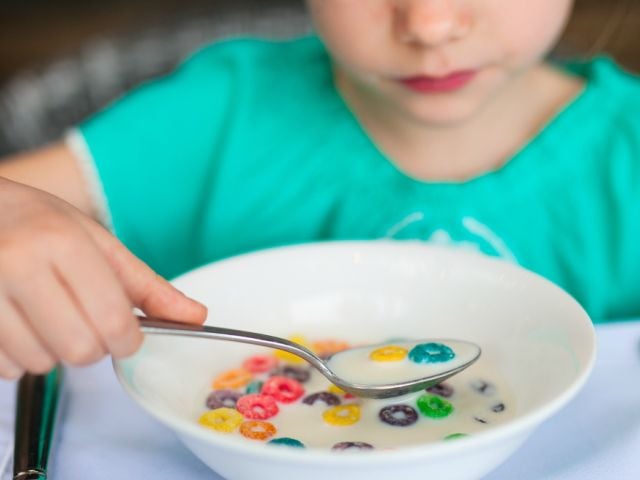
Black plastic can be found in many kitchens, used for spatulas, tongs, storage containers and more – but these utensils may be leaching chemicals that could harm you.
Harmful chemicals can seep from black plastic kitchenware if it's used regularly, particularly at high heat. These chemicals can get into your food if you use a black plastic utensil to scrape the bottom of a hot pan, for instance, or dip into or stir hot oil or leave it out on or near a hot stove.
The harmful chemicals in these utensils include flame retardants. Exposure to these toxic substances could harm the reproductive, neurological and immune systems, and is associated with health harms such as thyroid disease, diabetes and cancer.
Flame retardants in black plastic
Flame retardants and other chemicals end up in some black plastic cookware products made from plastic recycled from electronic products that contained them.
When exposed to heat or moisture, these chemicals can easily make their way into your meal. One study from 2018 found that flame retardants in black plastic cookware can easily transfer into cooking oil and significantly increase exposure risks.
Kitchen utensils contain one of the highest levels of flame retardantsof all consumer products tested in a 2024 study. And the risks don’t end with spoons and spatulas. Black plastic is also used in many types of carryout containers and trays, in addition to other cookware.
Not every sample in the study contained high levels of flame retardants. Some contained very low levels, or even none at all. It’s impossible to tell just by looking at the label of the utensil or product as there are no warnings.
More transparency about plastic recycling and stricter safety policies is needed to reduce exposures to unknown hazards, such as the chemicals in some kitchen utensils.
The Environmental Protection Agency in 2021 banned the flame retardant Decabromodiphenyl ether, but it does not apply to recycled plastics. So some cookware may still contain the chemical.
Other risks
Research shows that takeout containers and other plastic kitchenware can also leach potentially dangerous chemicals into your food, especially when they’re exposed to heat.
In addition to these chemicals, tiny pieces of plastic can also transfer to the food. These particles, known as microplastics, not only threaten the environment, they can also lead to the risk of changes to the gut and oral microbiota and harm to the kidney. Microplastics can range in size from 5 millimeters to 0.001 millimeters which allow them to easily travel through the body.
Containers such as sushi trays are often made of black plastic, combining the risks of plastic particles and flame retardants. Even if these containers are used for storage only and not directly exposed to heat, they can be affected by the high temperature of food and drinks, which can raise the risk of chemical and particle transference.
How to avoid health harms
You may find it tough to cut plastic completely from your routine. But you can take steps to reduce your exposure to harmful chemicals:
- Choose cooking utensils and cutting boards made of wood or metal instead of black plastic.
- Cook at home when you can to avoid using takeout containers.
- Replace your plastic takeout boxes with stainless steel, glass or ceramic food containers.
- Sip your coffee from a mug rather than a paper cup covered with a black plastic lid.
For even more sustainable swaps, check out EWG’s Amazon Storefront.



